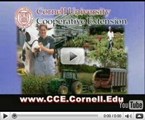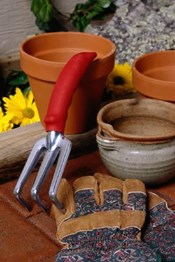The Cornell University Department of Horticulture’s blog recently highlighted the work of their professor David Wolfe.
In a new book, Wolfe explains what gardeners can do to deal with climate change and reduce their carbon footprints.
“There are many things gardeners can do to cope with climate change. And at the same time, they can reduce their greenhouse gas emissions and take other steps to slow the warming of the planet,” the blog says in its recent post Wolfe: Gardeners part of climate-change solution
According to the blog, to reduce their carbon footprints Wolfe suggests gardeners:
Be strategic with nitrogen fertilizers. Synthetic nitrogen uses copious amounts of energy to manufacture. And once applied, a portion inevitably is released as nitrous oxide, a potent greenhouse gas. Try legume cover crops (which can take nitrogen from the air and leave it in the soil to fertilize future crops) and local sources of manure or compost instead.
Store carbon in your soil. Crops remove carbon dioxide from the air and leave it in the soil as organic matter. Till your soil less because tillage breaks down organic matter and returns carbon dioxide to the atmosphere.
Plant trees. They store carbon in wood. Windbreaks can reduce energy used for heating buildings and shade trees can reduce cooling needs.
Reduce, reuse and recycle disposable products. Use organic mulches instead of plastics, for example.
Reduce fossil fuel use. Cut back on how much lawn you mow, and keep engines well-tuned.
To read more of Wolfe’s tip read the Cornell Horticulture blog post Wolfe: Gardeners part of climate-change solution.
More of Wolfe’s writing came be found in a chapter in the new book The New American Landscape: Leading Voices on the Future of Sustainable Gardening, recently published by Timber Press.





